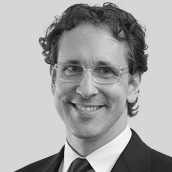
Dr. Juerg Steffen is CEO of Henley & Partners and author of definitive books on high-net-worth relocation to Austria and Switzerland.
The migration of private wealth and affluent individuals, whether via investment migration or otherwise, is finally regaining traction following more than two years of disruption due to the Covid-19 pandemic. Whether they are high-net-worth individuals (with wealth of USD 1 million or more), centi-millionaires (with wealth of USD 100 million or more), or billionaires, all are looking to protect their asset bases and enhance growth potential. Many are on the move, as the new Henley Private Wealth Migration Dashboard shows, and many more are reassessing where best to locate themselves, their families, and their assets as a hedge against the widely anticipated regional and global volatility that lies ahead.
After many years of steady growth, in 2020 and 2021 worldwide migration flows were dramatically impacted by the coronavirus outbreak and the subsequent border closures and travel restrictions, which commenced in February 2020. During this period of unprecedented global immobility and uncertainty, many high-net-worth individuals were left with no option but to postpone moving, while others canceled their plans to move altogether. Traditionally popular destination countries such as Australia, Canada, New Zealand, and the USA sealed their borders to such an extent that made it became almost impossible at times for anyone to enter, and high-net-worth individuals were no exception.

Many had no choice and experienced the discomfort of feeling trapped and having little control over their circumstances. Others who were fortunate to have optionality in terms of where they could reside, either through dual citizenship or permanent residence rights in other jurisdictions, enjoyed the freedom and benefits of having a Plan B or even C. It became very clear that your nationality and the associated personal access rights and privileges made a huge difference, and interest in investment migration as a domicile diversification tool skyrocketed.
In 2022, high-net-worth-individual migration has resumed at a significant pace, although not quite reaching pre-pandemic levels. By the end of the year, 88,000 millionaires are expected to have relocated to new countries, which is 22,000 fewer than in 2019, when 110,000 moved. Next year, however, the largest millionaire migration flows on record are predicted — 125,000 — as droves of affluent investors and their families earnestly prepare for the new post-Covid world, with a yet-to-be revealed rearrangement of the global order, and the ever-present threat of climate change as a constant backdrop.
For those interested in tracking private wealth migration trends, it is worthwhile looking back over the past decade since 2013. In that year, the number of millionaires who migrated was 51,000. If the 2023 forecast is accurate, growth over the decade will have been increased by 145%, despite the two-year pandemic plummet. Looking at the pre-pandemic numbers, growth in millionaire migration had been relatively steady each year. Apart from a jump of 28% in 2016, which saw a big rise in millionaire inflows into Australia, USA, Canada, and New Zealand — incentivized by investment migration programs, and the UAE, each year saw growth of between 12% and 16% until 2019, when growth was just 2%. High-net-worth-individual inflows into Canada declined significantly in 2019 and inflows into other countries leveled off and stabilized.
There are multiple factors that motivate the wealthy to relocate. During the 2013 to 2019 period, the main drivers included the desire for better education options, a higher standard of living in a safer environment, a more temperate climate or less polluted environment, opportunities for business diversification, and financial issues such as wealth preservation and legacy protection.
Since the outbreak of the Covid‑19 pandemic, and the latest socio-economic upheavals and geopolitical struggles across the world, the importance of having optionality across multiple jurisdictions in terms of where you can relocate and reside is gaining traction, and for those that can afford it, residence and citizenship by investment is the simplest, fastest and most effective way to achieve it.
The increasing outflow of affluent individuals often points to a drop in confidence in a country, since high- and ultra-high-net-worth individuals have the means to leave and are thus the first to exit and vote with their feet when circumstances deteriorate. Along with their families, millionaires also bring to their host countries their wealth, networks, and the taxes they pay. Losing millionaires can be detrimental to the economies and real estate markets of the countries they leave behind. In some cases, affluent individuals relocate their businesses — and the employment the businesses generate — as well as their skills, qualifications, and influence. So while millionaires may reflect only a fraction of a country’s population, producing, attracting, and retaining them is an important endeavor for any country.
The pandemic has heightened competition among countries to attract wealth and talent. In this environment, many are innovating. For example, a year ago the New Zealand Government took steps to facilitate the immigration of millionaires and highly qualified individuals, hoping that by doing so the country would gain financial and strategic advantages over other nations.
The benefits of implementing investment migration programs are tangible and increasingly attractive in a more volatile and fiscally challenging operating environment. The sheer extent of global volatility presents a distinct opportunity for supportive jurisdictions to capitalize on investors’ pressing need for alternatives by offering residence or citizenship-based investment solutions.
While personal security and citizenship diversification have always been driving forces for investors, the additional elements of enabling education opportunities for their families alongside better business and career prospects remain critical. This in turn offers host countries an immense opportunity to benefit from new talent — which is especially relevant when it comes to securing applicable skills for the new world of work.
Resourceful countries should focus on futureproofing their economies by attracting and welcoming the upcoming generation. Some advanced nations should consider revising their current somewhat exclusive approach to the rest of the world, and reform and adapt to overcome the competition and not miss out on the opportunity. Countries that refresh their outdated migration policies will have the edge. Those that implement innovative financing solutions such as investment migration programs, and design nuanced program options with targeted, project-specific investment propositions, tailored to their specific needs, such as the UAE is successfully doing, will soon reap the benefits.
Following the pandemic, many smaller jurisdictions have fallen into liquidity crises. The costs of Covid have led to increased borrowings and rising debt levels. With a stronger US dollar resulting from rising US interest rates, the availability of flexible residence options presents an important source of debt-free foreign investment and a broader capital injection at this critical time.
While we live in an era of increasing complexity and fragility, opportunity always beckons. The unique confluence of war, climate crisis, and pandemic have created new pressure points globally. There are compelling opportunities to provide safety nets for high-net-worth individuals beyond their home countries. Jurisdictions with potential should — within the context of rigorous due diligence and adherence to global and regional prescripts — prioritize developing options to secure the capital and talent that investment migration can bring.
There is no time like the present for investors to diversify their residence and/or citizenship options, and for countries to diversify their citizenry along with their economies. With global trends poised for volatility for some time to come, a responsible and forward-looking approach to the future — among both high-net-worth investors and sovereign nations — will see the highest yields.